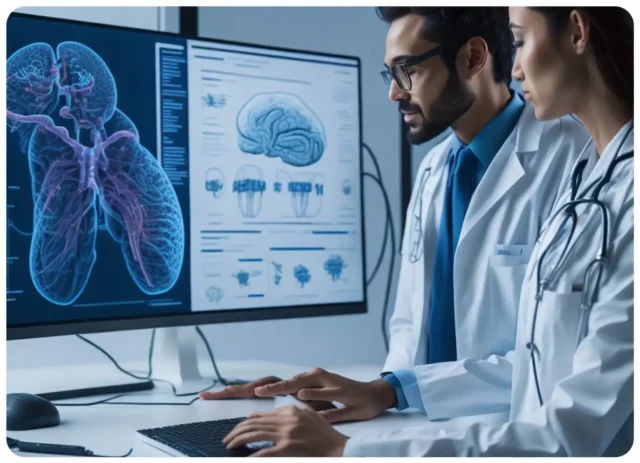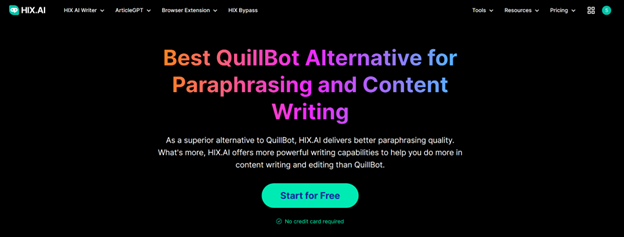Medical imaging is a vital measure in diagnosing and monitoring medical conditions. It encompasses various imaging modalities, including X-rays, CT scans, and MRI. As technology advances, so does medical imaging software development, with artificial intelligence (AI) now leading the way.
Table of Contents
AI Shaping The Future of Medical Imaging Software Development
AI has significantly evolved over the past decade, making it a valuable tool in various spectrums, such as medicine. Take the use of AI in medical imaging software development, for instance, which has provided comprehensive analysis and clinical insights, enhancing healthcare outcomes for patients and practitioners alike. In this piece, we will further discuss how artificial intelligence is revolutionizing medical imaging and shaping the future of healthcare.
Improved Diagnosis Accuracy
AI algorithms can accurately detect and diagnose medical conditions based on medical images. The algorithms from this medical imaging management platform typically consider specific features and patterns in the pictures to identify and analyze potential health issues; for the doctors, this translates into an accurate and reliable diagnosis of their patient’s condition. Aside from that, AI technology can also be used to detect abnormalities that may be missed by human eyes, resulting in earlier diagnosis and medical intervention.
Automated Image Analysis
Medical imaging software incorporating artificial intelligence technology can automate image analysis by performing detailed measurements and creating precise reports. The automation capabilities of the technology give medical professionals a chance to spend more time interpreting and performing interventions based on the data instead of processing the images. In the long run, this saves medical institutions time, money, and human resources that would have otherwise been wasted on manual image analysis.
Reduced Diagnosis Time
Traditionally, getting a medical practitioner to manually carry out diagnosis and image analysis would take anywhere between hours and days. However, with AI in medical imaging software development, this period is significantly reduced due to the technology’s speedy algorithm analysis, diagnosis accuracy, and automated image analysis. In addition to the swift turnaround of the technology, artificial intelligence also fosters better healthcare outcomes by facilitating earlier diagnosis and quicker interventions.
Personalized Treatment Plans
Artificial intelligence technology is critical in tailoring treatment plans for individual patients. The technology algorithms can be utilized to analyze patient-specific data, determining the best course of treatment for them while monitoring the effectiveness of the selected treatment; this provides a more personalized approach to healthcare, improving patients’ medical outcomes.
Note: Using AI technology to customize treatment plans is still a work in progress, which limits the application of this innovation in most medical conditions.
Improved Screening
With AI technology in the foreground, medical screening has taken off exponentially. Take cancer screening, for instance, which has improved dramatically since the merging of AI and the medical world. Artificial intelligence algorithms have enabled doctors to identify potential tumors and lesions more accurately than traditional screening methods. This AI-powered screening approach has, in turn, improved the rate at which cancer gets detected and diagnosed, increasing the overall success rate of cancer treatment in patients.
Conclusion
AI technology has appeared in various life spheres over the last couple of years, although many agree that its presence in the medical world is the most impactful. By providing accurate, automated analysis, artificial intelligence algorithms have improved diagnosis accuracy, reduced diagnosis time, and offered personalized treatment plans. Additionally, AI-powered screening has improved cancer detection and increased the overall treatment success rate. There’s no denying that AI technology in medical imaging software development has revolutionized healthcare, and as technology advances, we should expect to see additional improvements in the healthcare industry.



![Best Free Mobile Remote Desktop App [iOS & Android] Free Mobile Remote Desktop App](https://techniciansnow.com/wp-content/uploads/2024/01/Free-Mobile-Remote-Desktop-App.jpg)




